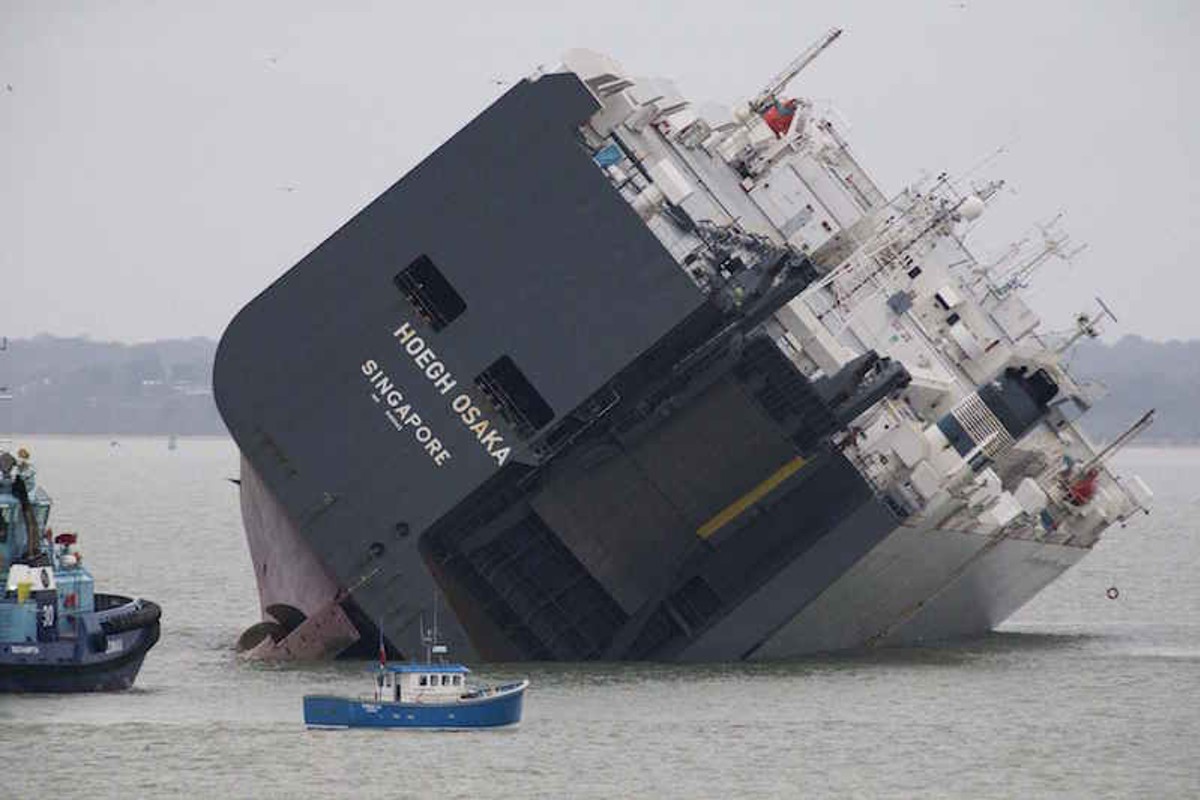Listing, flooding and grounding of vehicle carrier Hoegh Osaka
- Safety Flash
- Published on 31 March 2016
- Generated on 25 April 2025
- IMCA SF 07/16
- 2 minute read
Jump to:
The MAIB has published Accident Investigation Report 6/2016 regarding the recent listing, flooding and grounding of vehicle carrier Hoegh Osaka.

What happened?
In summary, the report notes that the vessel developed a significant starboard list when turning to port, not long after it was departing Southampton, UK. As the list increased in excess of 40°, the vessel lost steerage and propulsion, and subsequently drifted aground. A cargo shift, as the vessel listed, resulted in a breach of the hull and consequent flooding. All crew were safely evacuated from the ship and surrounding waters. There was no resulting pollution, and the vessel was later successfully salvaged.
It was shown through subsequent stability modelling and analysis that the vessel listed heavily to starboard while turning as a result of having inadequate stability, which had not been identified prior to departure.
The MAIB raised the following safety issues:
- Assessing a ship has adequate stability for its intended voyage on completion of cargo operations and before it sails is a fundamental principle of seamanship that must not be neglected.
- A loading computer is an effective and useful tool for the safe running of a ship. However, its output can only be as accurate as the information entered into it.
- It is imperative that working practices enable correct information to be provided and that sufficient time is made available before departure for an accurate stability calculation to be completed.
- An accurate stability calculation before departure is fundamental to safety.
The full report from the MAIB can be found at gov.uk/maib-reports/listing-flooding-and-grounding-of-vehicle-carrier-hoegh-osaka
IMCA Safety Flashes summarise key safety matters and incidents, allowing lessons to be more easily learnt for the benefit of the entire offshore industry.
The effectiveness of the IMCA Safety Flash system depends on the industry sharing information and so avoiding repeat incidents. Incidents are classified according to IOGP's Life Saving Rules.
All information is anonymised or sanitised, as appropriate, and warnings for graphic content included where possible.
IMCA makes every effort to ensure both the accuracy and reliability of the information shared, but is not be liable for any guidance and/or recommendation and/or statement herein contained.
The information contained in this document does not fulfil or replace any individual's or Member's legal, regulatory or other duties or obligations in respect of their operations. Individuals and Members remain solely responsible for the safe, lawful and proper conduct of their operations.
Share your safety incidents with IMCA online. Sign-up to receive Safety Flashes straight to your email.